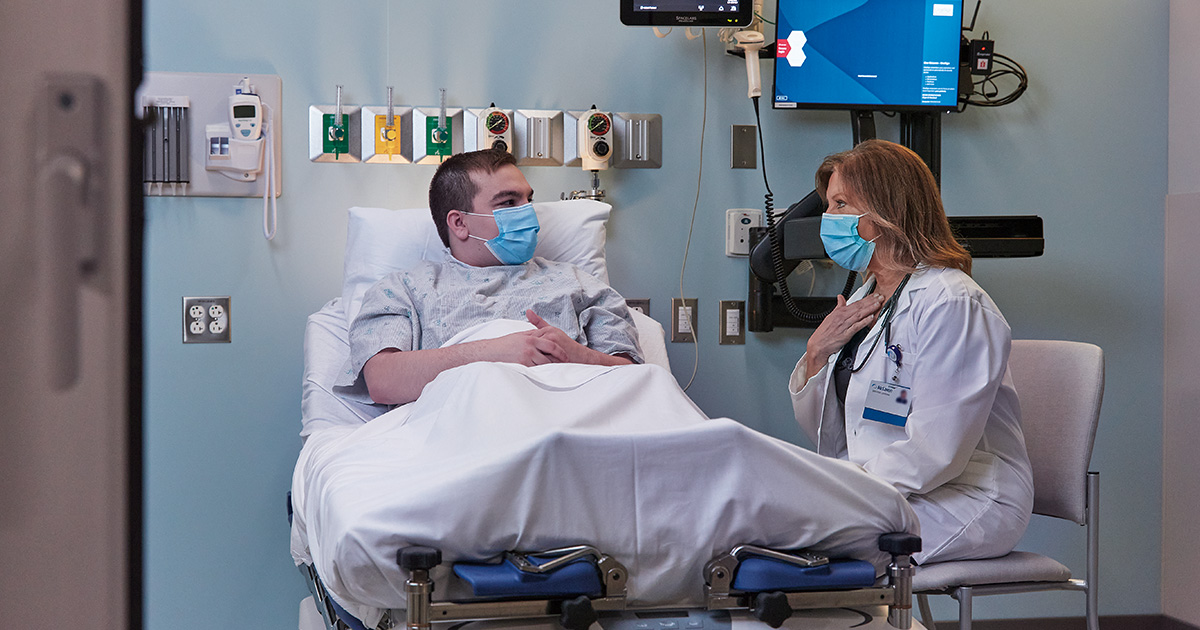
Accidents happen, and so do health emergencies, and emergency room doctors see it all, big and small, every day. Because of this, they know simple mistakes you can avoid that can cause serious health problems or even put your life at risk. Here are five crucial things an ER doctor says you should never do.
Don't ignore chest pain
Chest pain can be a sign of a serious condition, such as a heart attack or a blood clot in the lungs. Other symptoms include shortness of breath, sweating, nausea, and/or pain radiating to the neck, arm, or jaw.
Don't drive yourself to the emergency department; call 911. Paramedics can begin administering lifesaving medications immediately and can alert the emergency department before you arrive, especially if immediate cardiac interventions are needed.
Don't delay coming in after head trauma
When it comes to hitting your head, early intervention and the right treatment can lead to better recovery outcomes and reduce the risk of complications.
“Especially don't delay if you experience symptoms such as confusion, memory loss, difficulty staying awake, seizure, headaches, loss of consciousness, or vomiting,” said Dr. Larisa Traill, Emergency Department Medical Director at McLaren Greater Lansing. “Some head injuries are time-sensitive, and delaying treatment can worsen the condition.”
Don't "Google" your symptoms and self-diagnose
"Cyberchondria" (also known as "compucondria") is the condition of having unfounded anxiety about common symptomology and the state of one's health as a result of visiting online health and medical websites.
“While some online information can be helpful, it is not a substitute for professional medical advice,” said Dr. Traill. “Anyone can publish content online, and not all sources are accurate or credible. Online searches also don't consider your individual medical history, current medications, or other relevant factors that a physician would consider. Self-diagnosis leads to anxiety, misdiagnosis, and delays in getting proper treatment.”
Don't "wait it out" with signs of a stroke
Don't delay seeking medical help if you suspect someone is having a stroke. Symptoms include facial drooping, arm or leg weakness, speech difficulty, and severe headache. Other signs may include vision problems, dizziness, difficulty walking, confusion, or loss of balance. Time is critical. Call 911. Waiting too long after a stroke can significantly worsen the damage to the brain and increase the risk of long-term disability or death. Every minute matters, and prompt medical attention is crucial to maximize recovery and minimize complications. Some types of strokes require immediate treatment with either medications or a procedure to remove the clot causing the stroke.
Don't mix alcohol with anything you climb, set fire to, or that has a motor
Accidental injuries commonly linked to alcohol include head and facial injuries, fractures, burns, and drowning.
“In the US, half of the estimated 100,000 deaths attributed to alcohol are due to intentional and unintentional injuries,” said Dr. Traill. “So, if you have to say: 'hold my beer,' just don't do it.”
To learn more about emergency services at McLaren Greater Lansing, click here.
To read more about health and wellness, click here.